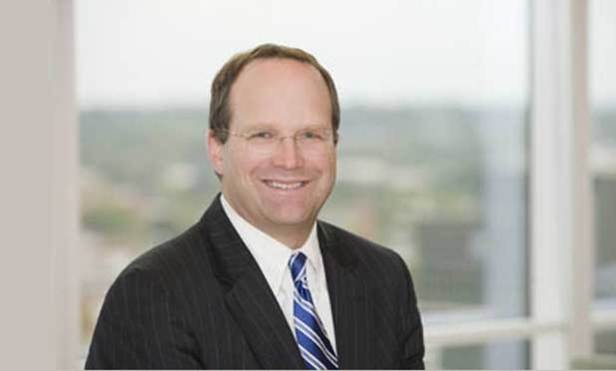Albert H Manwaring Iv

June 01, 2016 | Delaware Business Court Insider
Disregard of Speculative Financial Projections Was Not Bad FaithIn a stockholder challenge to a sale of the company, a plaintiff may rebut the business judgment rule by pleading facts that support a reasonable inference that at least half of the directors, who approved the sale, were not disinterested or independent in breach of their fiduciary duty of loyalty. While the prohibition against self-interested transactions by the board is the most fundamental obligation under the duty of loyalty, the good-faith corollary to the duty of loyalty under In re The Walt Disney Derivative Litigation, 907 A.2d 693, 754-55 (Del. Ch. 2005), is "something of a catch-all," providing a "fiduciary out from the business judgment rule." Good faith under the duty of loyalty prohibits "intentional dereliction of duty, [or] inaction in the face of a duty to act," which allegations support a claim for bad faith. In a bad-faith claim, the board's intentional action, or inaction in the face of a known duty to act, cannot be explained "as in the corporate interest: res ipsa loquitor." The Delaware Court of Chancery has emphasized that pleading facts to support a bad-faith claim is the "most difficult path to overcome dismissal" and that such facts are a "rara avis."
By Albert H. Manwaring IV
14 minute read

April 20, 2016 | Delaware Business Court Insider
Court of Chancery Eyes Duties in Deals Involving StockholderTo determine the applicable standard of review in a stockholder challenge to a corporate transaction, a plaintiff may rebut the business judgment rule by pleading facts that support a reasonable inference that "a controlling stockholder stands on both sides of a transaction, or at least half of the directors who approved the transaction were not disinterested or independent." If the business judgment rule is rebutted, the most rigorous standard of review, entire fairness, which examines fair dealing and fair price in a transaction, is applicable.
By Albert H. Manwaring IV
14 minute read

March 02, 2016 | Delaware Business Court Insider
When a Director May Inspect the Company's Books and RecordsSection 220(d) of the Delaware General Corporation Law (DGCL) permits a director to inspect a company's books and records "for a purpose reasonably related to the director's position as a director."
By Albert H. Manwaring IV
8 minute read

January 13, 2016 | Delaware Business Court Insider
Chancery Defers to Indian Corporation's Delaware Choice of VenueIn the absence of a prior-filed action in another forum, Delaware state courts will respect a plaintiff's Delaware choice of forum when faced with a forum non conveniens defense, except in the "rare case" where a defendant demonstrates "overwhelming hardship and inconvenience if required to litigate in Delaware."
By Albert H. Manwaring IV
7 minute read

January 12, 2016 | Delaware Business Court Insider
Chancery Defers to Indian Corporation's Delaware Choice of VenueIn the absence of a prior-filed action in another forum, Delaware state courts will respect a plaintiff's Delaware choice of forum when faced with a forum non conveniens defense, except in the "rare case" where a defendant demonstrates "overwhelming hardship and inconvenience if required to litigate in Delaware."
By Albert H. Manwaring IV
7 minute read

November 25, 2015 | Delaware Business Court Insider
Goldman Sachs May Still Be Liable After Board's Fiduciary Duty Breach ExculpatedSection 102(b)(7) of the Delaware General Corporation Law permits a provision in a company's certificate of incorporation that exculpates directors from monetary liability for breaches of the fiduciary duty of care. By immunizing directors from money damages for breaches of the duty of care, Section 102(b)(7) provisions serve an important purpose in Delaware corporate law to encourage well-qualified people, who may be risk averse, to serve as directors without fear of monetary liability for a duty-of-care mistake. Section 102(b)(7) does not, however, protect officers from duty-of-care violations. Nor does Section 102(b)(7) immunize an aider and abettor from monetary liability for a board's breach of the duty of care—that is even when the board itself is exculpated from such liability. The Court of Chancery recently had the opportunity to address whether a financial adviser may still be liable for aiding and abetting after a board's breach of the duty of care was dismissed under a Section 102(b)(7) exculpation provision in the company's charter.
By Albert H. Manwaring IV
6 minute read

November 25, 2015 | Delaware Business Court Insider
Goldman Sachs May Still Be Liable After Board's Fiduciary Duty Breach ExculpatedSection 102(b)(7) of the Delaware General Corporation Law permits a provision in a company's certificate of incorporation that exculpates directors from monetary liability for breaches of the fiduciary duty of care. By immunizing directors from money damages for breaches of the duty of care, Section 102(b)(7) provisions serve an important purpose in Delaware corporate law to encourage well-qualified people, who may be risk averse, to serve as directors without fear of monetary liability for a duty-of-care mistake. Section 102(b)(7) does not, however, protect officers from duty-of-care violations. Nor does Section 102(b)(7) immunize an aider and abettor from monetary liability for a board's breach of the duty of care—that is even when the board itself is exculpated from such liability. The Court of Chancery recently had the opportunity to address whether a financial adviser may still be liable for aiding and abetting after a board's breach of the duty of care was dismissed under a Section 102(b)(7) exculpation provision in the company's charter.
By Albert H. Manwaring IV
6 minute read

October 07, 2015 | Delaware Business Court Insider
Fraud Vitiated Special-Committee Process in Dole MergerIn a self-interested transaction between a company and its controlling stockholder, the operative standard of judicial review under Delaware law is the most rigorous: entire fairness standard of review. To obtain the least rigorous, business judgment standard of review, and reduce the risk of a minority stockholder challenge in a merger transaction between a company and its controlling stockholder, parties may condition the controlling stockholder merger on approval by: (1) a board committee composed of disinterested and independent directors and (2) the affirmative vote of a majority of the minority or unaffiliated stockholders (In re MFW Shareholders Litigation, 67 A.3d 496 (Del. Ch. 2013), aff'd sub nom., Kahn v. M&F Worldwide, 88 A.3d 635 (Del. 2014)). Similarly, parties may employ either one of these safeguards to shift the burden of proof to the plaintiff under the entire fairness standard of review (Emerald Partners v. Berlin, 787 A.2d 85, 98-99 (Del. 2001)). Moreover, a well-functioning special committee advised by its own independent financial and legal advisers, and/or an affirmative vote of a majority of the minority or unaffiliated stockholders makes a stronger case to support a finding of fair dealing or process, which in turn influences the fair price inquiry to satisfy entire fairness review.
By Albert H. Manwaring IV
8 minute read

October 07, 2015 | Delaware Business Court Insider
Fraud Vitiated Special-Committee Process in Dole MergerIn a self-interested transaction between a company and its controlling stockholder, the operative standard of judicial review under Delaware law is the most rigorous: entire fairness standard of review. To obtain the least rigorous, business judgment standard of review, and reduce the risk of a minority stockholder challenge in a merger transaction between a company and its controlling stockholder, parties may condition the controlling stockholder merger on approval by: (1) a board committee composed of disinterested and independent directors and (2) the affirmative vote of a majority of the minority or unaffiliated stockholders (In re MFW Shareholders Litigation, 67 A.3d 496 (Del. Ch. 2013), aff'd sub nom., Kahn v. M&F Worldwide, 88 A.3d 635 (Del. 2014)). Similarly, parties may employ either one of these safeguards to shift the burden of proof to the plaintiff under the entire fairness standard of review (Emerald Partners v. Berlin, 787 A.2d 85, 98-99 (Del. 2001)). Moreover, a well-functioning special committee advised by its own independent financial and legal advisers, and/or an affirmative vote of a majority of the minority or unaffiliated stockholders makes a stronger case to support a finding of fair dealing or process, which in turn influences the fair price inquiry to satisfy entire fairness review.
By Albert H. Manwaring IV
8 minute read

August 05, 2015 | Delaware Business Court Insider
Notice of Stockholder Meeting Required to Enforce Advance Notice BylawsAdvance notice bylaws, requiring stockholders to give a corporation timely notice of their nominees to the board before a stockholder meeting for the election of directors, are a proper corporate governance tool.
By Albert H. Manwaring IV
6 minute read
More from ALM
- Scan In Progress: Litigators Leverage AI to Screen Prospective Jurors 1 minute read
- Legal Speak at General Counsel Conference East 2024: Match Group's Katie Dugan & Herrick's Carol Goodman 1 minute read
- Legal Speak at General Counsel Conference East 2024: Eric Wall, Executive VP, Syllo 1 minute read



